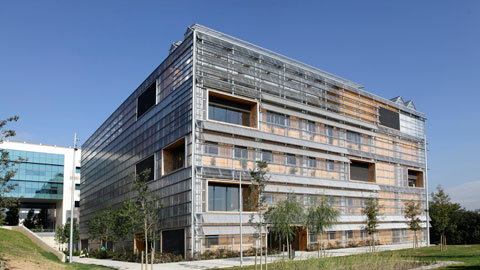More than One-Third of the Population Would Stop Economic Growth to Achieve Sustainability

07/11/2016
More than one-third of the Spanish population (37%) prefers ignoring or stopping economic growth to achieve environmental sustainability. This is the conclusion of a study by researchers of the Institute of Environmental Science and Technology from the Universitat Autònoma de Barcelona (ICTA-UAB) who recently assessed public opinion on economic growth, the environment and prosperity through asurvey conducted with one thousandSpanish citizens. The study, authored by Stefan Drews and Jeroen van den Bergh, was published in the journal Global Environmental Change. According to Stefan Drews, who undertook the research in the context of his PhD thesis, “For decades, there has been academic and public debate on whether economic growth is compatible with environmental goals and whether it is a good proxy of progress. Although this has also received considerable attention in mass media and public forums, there is fairly little systematic knowledge about what the general public thinks about these questions. This served as the motivation for starting this research.”
One particularly interesting survey question investigated public views on what kind of growth-environment strategy public policy should pursue. The results show that the majority of respondents (59%) favor continuing with growth, as it can be combined with environmental sustainability (often called green growth). More than one-third of the Spanish population (37%) prefers ignoring or stopping economic growth to achieve environmental sustainability. Of this percentage, some 21% supported ignoring growth as a policy aim (agrowth), while 16% supported stopping it altogether (degrowth). Only 4% expressed a clear desire for unconditional growth (growth-at-all-costs).
Overall, the questionnaire included some 40 questions about various aspects of the economic growth debate. For example, the most widespread pro-growth belief (with 80% agreement) is that growth is necessary to create jobs. At the same time, about 40% of the population believes that “a good life without economic growth is possible”.
Another controversial issue of the debate is whether endless economic growth is possible or not. When asked about when they think economic growth in rich industrialized countries may come to end, the study participants gave answers ranging from very pessimistic to very optimistic. A considerable number of people (44%) believed that economic growth may stop within the next 25 years. At the other extreme, almost 30% of respondents believe it may be never-ending. Socioeconomic reasons (e.g. inequality) were somewhat more important than environmental ones (e.g. energy scarcity) to justify beliefs in an end of growth. Strong confidence in technology and human ingenuity were the main reasons indicated by those believing in never-ending growth.
The survey also included questions about socio-demographic and psychological characteristics. For example, the results show that people with conservative values (e.g. attaching much value to “tradition” and “security”) hold especially strong pro-growth views. In addition, people who were more religious and politically right-of-center had more positive views about economic growth.
“The general value of this study is that it provides a comprehensive and nuanced picture of public opinion on the relationships between economic growth, the environment and prosperity”, says Stefan Drews. The results suggest that there is not just polarization of views among academics, but also within the general public. Political decision-makers can learn from the study that the societal goal of economic growth is questioned by many people on both social and environmental grounds.